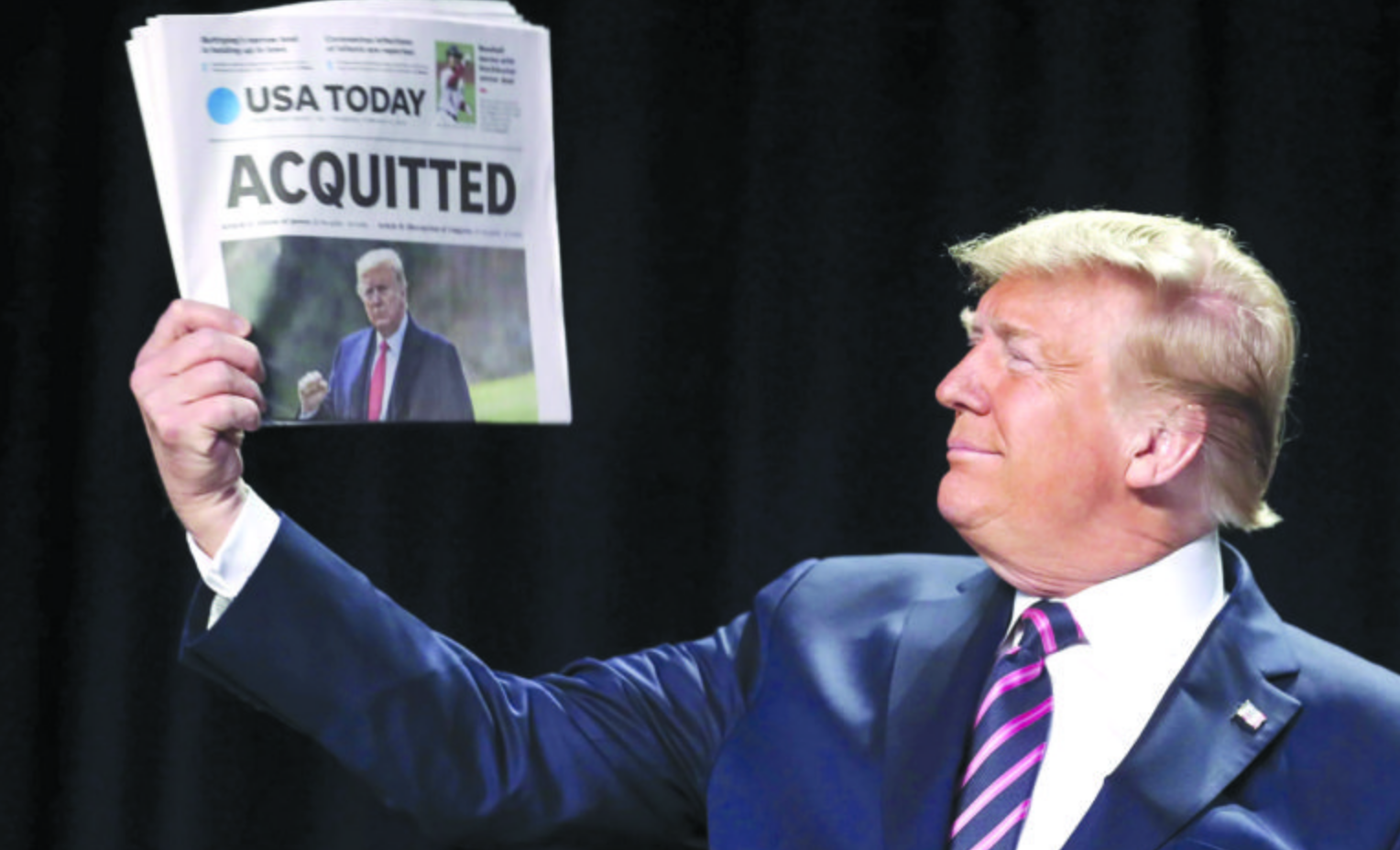 If you were paying attention to US news this past week it was probably tough not to know that the Senate trial of President Trump concluded with him being acquitted by a vote that pretty much went along straight party lines. I say pretty much because a lone Republican Senator, Mitt Romney, from Utah, voted to convict.
If you were paying attention to US news this past week it was probably tough not to know that the Senate trial of President Trump concluded with him being acquitted by a vote that pretty much went along straight party lines. I say pretty much because a lone Republican Senator, Mitt Romney, from Utah, voted to convict.
The reason Romney’s vote stood out for some scholars of religion on social media was likely the manner in which he couched his decision in light of his faith.
Take a look:
“I am profoundly religious. My faith is at the heart of who I am,” he said, near the opening of his speech from the Senate floor, before a long pause, seemingly to collect himself; “I take an oath before God,” he then continued, “as enormously consequential….”
Skip to the next morning, when President Trump appeared at the US’s National Prayer Breakfast, itself an event with a long and interesting tradition in US government (it was first established in 1963 and known as the Presidential Prayer Breakfast until 1970). After holding up a few newspapers, with headlines about his acquittal, he began speaking by saying, just a couple minutes into his opening remarks:
I don’t like people who use their faith as justification for doing what they know Is wrong; nor do I like people who say ‘I pray for you’ when they know that that’s not so.
Give it a listen:
It seems pretty clear that it wasn’t just Romney who was in his sights; the jab about people praying for him was surely directed at someone sitting just a few spots away, to his left, at the head table: Nancy Pelosi, a Democrat and the Speaker of the House of Representatives who, on various occasions in the past has noted that she prays for the President. For example, consider last December when, in response to a reporter who, as she was leaving the press conference, asked a questions about whether she hated the President, she responded:
And as a Catholic, I resent your using the word “hate” in a sentence that addresses me. I don’t hate anyone. I was raised in a way that is full, a heart full of love. And always pray for the President. And I still pray for the President. I pray for the President all the time. So don’t mess with me when it comes to words like that.
See the exchange here:
So, what might a scholar of religion make of all this…?
Is it yet another unfortunate intrusion of religion into politics or is something else going on?
What stands out for me is the manner in which references to faith in public discourse can easily cut both ways; for, given that these all too public claims (such as ones rationale for voting to remove a sitting President from office) are anchored by appeals to an interior, personal, and strictly private disposition, they can be used in a variety of ways, not all intended by the speaker — because, by design, there’s no obvious referent for any of these claims. So, while Romney and Pelosi may seek to authorize their positions by linking them to their religious faith, presuming their audience knows what they’re talking about, Trump makes evident that we can just as easily change the game altogether and undermine their position by questioning their sincerity, thereby invoking a previously unanticipated criterion to measure the legitimacy of claims that, once and for all, can never actually be measured (since they don’t pair up to anything in the world that we can bump into or debate in some established manner). Shifting the ground to sincerity is a move the US courts made long ago, of course, looking for some way to decide which claims of religious exemption counted — though, as you can probably guess by now, there’s no agreed-upon measure of sincerity. The once popular view that it was linked to such things as church attendance and membership (the more you go = the more sincere you are, I guess) hardly holds water any more, what with people replying with their own claims of a spirituality that transcends religious institutions. (Interested in a legal discussion on some of this?)
And so where does this leave us…?
For those game to hear discourses about faith, experience, and belief as doing something other than merely representing in public some always unseen and privileged inner sentiment or disposition that a speaker just has — those scholars who, instead, hear them as one among the many ways that members of social groups joust on the public stage for status and place — this episode in US politics is good to think with; for it shows us the match happening in real time, allowing us to chart the moves and counter-moves, to study contests in the syntax of authority.
Nice piece.
In some ways, if we look back to the early arguments in Massachusetts Bay Colony over conscience in public or private and/or under civil or ecclesiastical power (see esp. Williams or Hutchinson against Winthrop and/or Cotton), and then to later debates in Edwards’ time over the authenticity of people’s “religion” or “religious affections” in the New England “awakening,” we might notice how deploying this category of “sincerity” (in one form or another) has long played a fundamental role in “the syntax of authority.”
Yes! And I think that Keeley McMurray, completing her MA in our Dept., should be made aware of your comment, to see what she might say here….